Now that the first two contests for the Democratic nomination are over, it’s time to take stock of where the race is and where it might be going.
The two Nevada surveys conducted within the past week give Sen. Bernie Sanders an average of 30 percent support, and a 14-point lead over former Vice President Joe Biden. Now the clear favorite to prevail in Nevada, Sanders seems likely to head into South Carolina as the winner of the popular vote in the first three contests, and the clear front-runner in the race for the nomination.
Biden has something to gain in Nevada, but more to lose. If he finishes a clear second to Sanders, he will be able to argue that his campaign is stabilizing after dismal showings in the first two contests. Anything less than a clear second will add fuel to the “collapsing candidacy” narrative that took hold the night of the New Hampshire primary.
The non-Sanders vote in Nevada shows no signs of coalescing around a single candidate. Biden averages 16.0, Elizabeth Warren 14.5, Pete Buttigieg 12.5, Tom Steyer 10.5, and Amy Klobuchar 9.5. For now, anyway, neither Buttigieg nor Klobuchar has gotten a significant bounce from their strong finish in New Hampshire. A breakout performance in tomorrow’s debate could change this.
Former New York City Mayor Michael Bloomberg is the big question mark in this race. He is about to participate in his first Democratic debate and all eyes will be focused on him. The NPR/PBS NewsHour/Marist poll released earlier this week puts him in second place to Sanders with 19 percent of the vote, ahead of Biden’s 15 percent. Bloomberg has gained 15 points since the previous Marist poll in December while Biden has fallen by 9 points and Sanders has risen by 9. In addition, Bloomberg’s support is surprisingly broad-based. Although he does much better among self-identified moderates than among progressives, he draws equal support from Democrats and Independents, and from non-whites and whites. He does better among less-educated whites than among college graduates, among men than women, and he beats Biden among older voters, the core of the former vice president’s coalition.
Although Bloomberg will not be on the ballot until Super Tuesday, he has emerged as a credible challenger for the nomination after spending hundreds of millions of dollars on advertisements and deploying a massive staff in the Super Tuesday states. When the wizard emerges from behind his curtain of ads onto the debate stage in Nevada, no one knows whether he will reinforce or blunt his surge. Stay tuned.
What all of this means is that the race for the nomination could take shape very quickly. It is do or die for Joe Biden in South Carolina, which his campaign has labelled his “firewall” and where he has lost considerable ground during the past month. The January survey of East Carolina University gave him 37 percent of likely voters, a figure that fell to 28 percent in the just released February ECU poll, while Bernie Sanders’ support doubled from 10 to 20 percent. Biden’s once commanding lead among African Americans is now confined to those 55 and older, where he enjoys a 40-point edge. Among African Americans under 55, Sanders now enjoys a slight edge.
If Biden loses to Sanders in the Palmetto State, he would probably be forced to leave the race, and the rationale for Warren’s continued presence would be weakened, perhaps fatally. Unless Buttigieg or Klobuchar manages to exceed expectations in the remaining February contests, Mike Bloomberg would be left as the only major obstacle to Sanders’ nomination. The head-to-head competition between them in the fourteen Super Tuesday primaries on March 3, which collectively award about one-third of the pledged delegates to the Democratic convention, could determine whether the Democratic contest would continue for months—or end abruptly with Sanders’ coronation as the presumptive nominee.
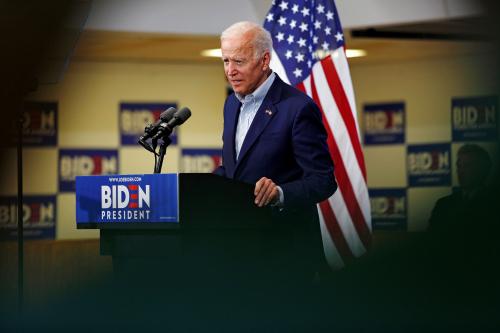
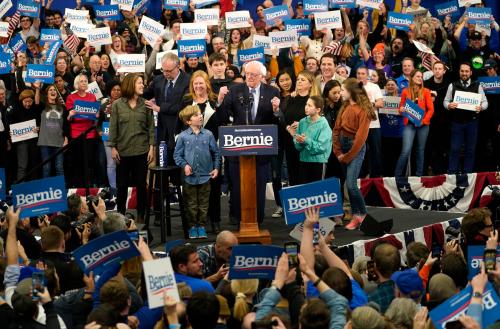
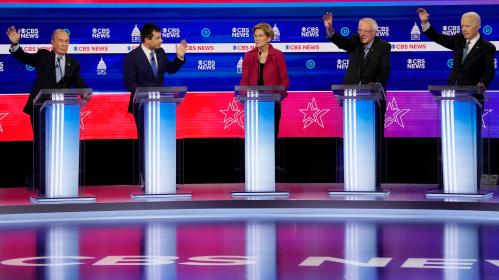
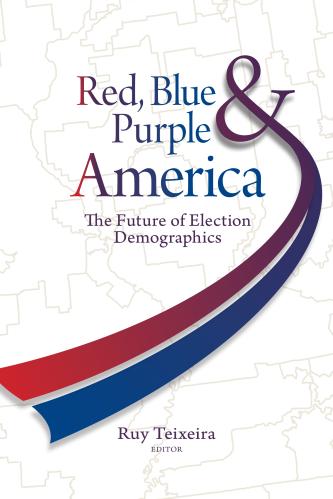
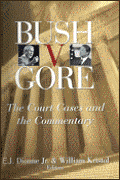
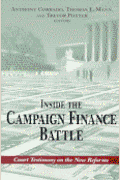


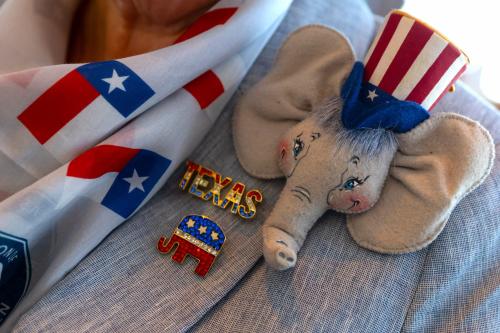
Commentary
Do or die: Why Nevada and South Carolina are now crucial in the race for the White House
February 18, 2020